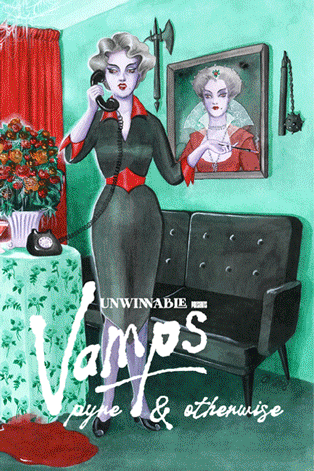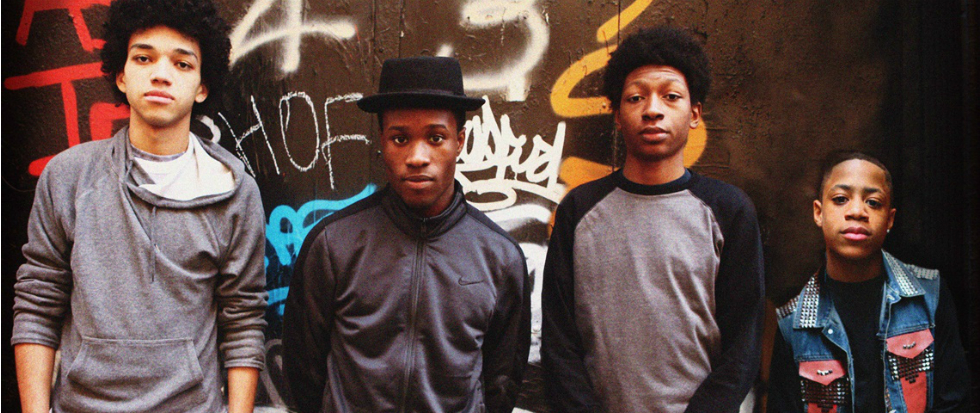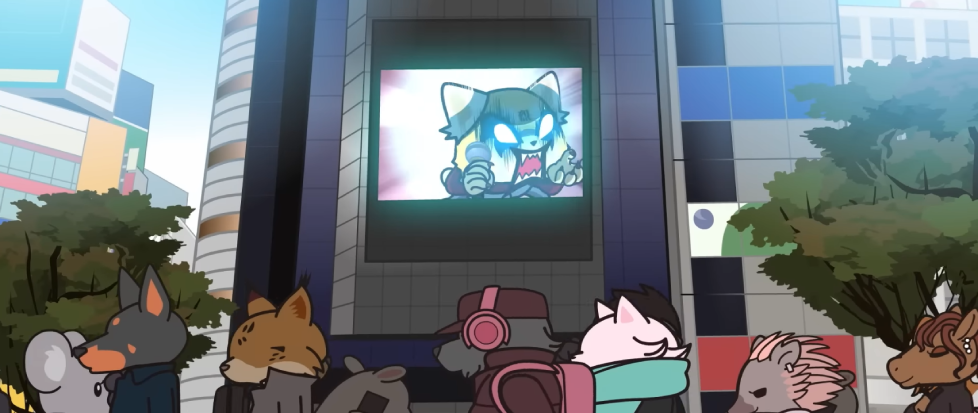
Aggretsuko’s Excellence Was Hidden in Plain Sight
Netflix has a weird “affinity” for what I refer to as “furry shows”: series about animal people. Their crown-jewel Bojack Horseman and its spin-off Tuca & Bertie are obvious examples, but even their curated selection of anime reflects this affinity too. Beastars, BNA, Rilakkuma: Despite their wildly different tones and stories, anthropomorphized animal anime have a home on this specific streaming service. However, if you want to know which furry show on there is my favorite, it’s a series that, despite being on Netflix (a company notorious for only giving shows two seasons before pulling the plug regardless of critical reception), managed to get five whole seasons before finishing in February of last year: the office comedy about an overworked red panda in her mid 20s, Aggretsuko.
At first glance, you would be forgiven for thinking that this series wouldn’t have staying power. The premise is something we’ve seen a million times: an office worker (named Retsuko) who tries to have a decent life in modern day Japan, while dealing with a job and coworkers who frequently overstress and irritate her. However, it’s what Retsuko does in her off-time is what sets this show apart: her hobby is singing death metal karaoke, channeling her anger and pent-up frustrations into her lyrics (Retsuko goes aggro, and therefore, “aggretsuko”). This is where a lot of this show’s early humor comes from, but crucially, this “hidden talent” is what sets up Retsuko’s character development, and serves as a recurring theme. Not only does Retsuko have more depth to her than most of the other characters in the show (and probably most first time viewers) initially think, but Aggretsuko as a whole is full of side characters who are shown to have lives outside of work. Not only does this series have one of the best supporting casts you can find in an anime, it’s one of the most subversive workplace comedies in all of the 2010s.
The first season of Aggretsuko starts out with a cast of stereotypes that we expect: Retusko the timid (and sorta bland) protagonist, her work-friends Fenneko and Haida (the latter of whom nurses a crush on Retsuko), the social media and dating-savvy Tsunoda, the overly chatty Kabae, and the wonderfully shitty boss, Director Ton. The initial plot is familiar too, with Retsuko trying to do a thankless job as best she can while looking into other career avenues and wading through a frustrating dating scene. However, it’s the supporting cast in this first season that makes this show open up.
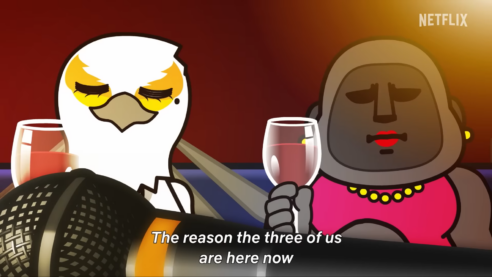
Director Gori and Ms. Washimi are introduced later on as senior workers at the same company who at first glance Retsuko thinks have “made it” and are miles above her in experience and social standing. A major plot point in this season though is when they find out about her death-metal karaoke hobby: They’re the first characters who find out about her secret, and they wind up befriending her over something they see as genuinely cool. They’re subsequently revealed to be rather down to earth, as Gori is 40 years old and is still trying to find “the one” and Washimi has already been married and divorced. Retsuko opening up to them, albeit in an unusual way, leads to discussions with two experienced female co-workers who help her gain insight into what lies down the road, both in and outside of work.
Throughout the five seasons (and a Christmas special), Aggretsuko introduces characters based on overused archetypes, and fleshes them out so much that they often become surprisingly memorable. Director Ton starts out as a boss we wish to see get what’s coming to him, but by the end of the series he’s one of my personal favorite characters. He’s aware that he’s from a different and much harsher time, and is shown to have a family that’s his top priority in life. During the series finale he’s actually shown to be one of Retsuko’s best supporters (even though he wouldn’t ever directly admit to it). Ton is a kind of antagonist I wish we saw more: someone who starts off villainous while being really entertaining, but is still an actual character that over time makes the protagonist change, develop, and improve themselves. The same goes for Retsuko’s other colleagues, many of whom have lives of their own outside the workplace and find moments where they help her out at critical moments, giving her unexpected yet often sound advice. Just as Retsuko herself has a hidden personal life that surprises other characters, Aggretsuko’s supporting cast all have personalities that make an office comedy about animal people feel grounded and astonishingly well thought out.
It might sound odd to say that this show feels “too real” at times, especially when you look at Retsuko’s story arc across all five seasons. Among various romantic entanglements, there’s a short yet intense foray into being a pop idol, getting involved in a workplace scandal that entangles a close friend of hers, and even ultimately a political campaign that publicizes and centers on her rage-persona. This progression doesn’t just look outlandish when listed so plainly; if you heard all this after watching the first season, it might sound implausible given where our protagonist starts. But this whole storyline is a result of Retsuko learning to take more agency in her own life. She not only shows more people her hidden, rage-fueled side of herself, her path is forged by her standing up for herself more and declaring what she wants from life, usually in moments where her aggro-persona takes over and belts out what she’s really thinking (which in turn can make other characters get off their own asses and do what needs to be done in their own lives). Aggretsuko is about a woman who starts out as a passive worker, but realizes that if you want something to change in your life, you can’t sit quietly and do nothing. You have to get loud about it.
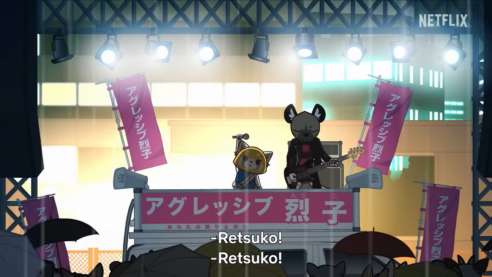
I won’t deny that while I am a bit disappointed that Aggretsuko will probably be remembered as just a cult classic, it does feel somewhat fitting. The series doesn’t end with its protagonist definitively changing her country, but instead on a hopeful (and better yet, realistic) note of her inspiring the generation that’s coming up right after her that a better life is possible, if you engage with it to make it happen. Personal and societal change isn’t easy, but when a show as grounded as Aggretsuko says that both are still possible, that’s honestly more inspiring than pretty much every fantasy anime that’s come out in the past decade.
When people look back on the shows of the 2010s, Aggretsuko will stand out thanks to not only its distinct artstyle, but also due to having one of the best English dubs of the past decade. Thanks to a killer script and excellent performances from its voice acting cast, the English version of the show is often funnier than the original Japanese subtitled version, while still keeping its real-world subject matter and more serious moments fully intact. Better yet, its outstanding supporting cast makes this series incredibly rewarding to stick with, as it finds ways to reference key moments way back from the first season during the series finale. In the packed field of office sitcoms, anime or otherwise, Aggretsuko sang (or rather, belted) its own tune. Like its characters, this show looked intentionally unassuming at first glance, but when you got to know it, nothing else sounded remotely like it.
———
Van Dennis is a writer and media critic. A Portland native, he spends way too much time playing games, writing about movies and anime, and window-shopping on Bring a Trailer.
